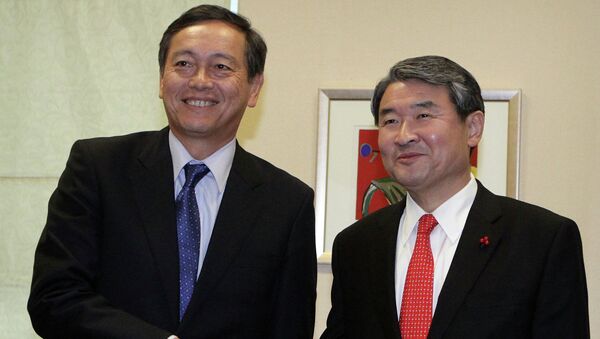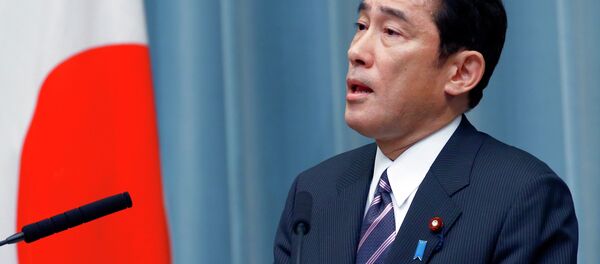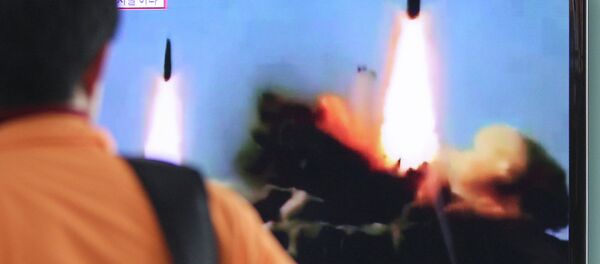"Both sides positively assessed the sustained development of their economic ties over the past 50 years and shared the view that they should more closely cooperate in order to make their economic cooperative relations more forward-looking," Seoul's Ministry of Foreign Affairs was quoted by the news agency as saying in a statement.
Bilateral relations recently became more tense after Seoul claimed that Japan used Korean women as sex slaves during World War II and demanded a state apology. In addition, the two countries have been engaged in territorial disputes over the Liancourt Rocks, a group of small islands in the Sea of Japan.
According to the ministry's statement, the two countries agreed to support joint business projects, as bilateral trade has increased by 400 times since they established diplomatic ties in 1965. In 2014, bilateral trade was estimated at $90 billion, as reported by the news agency.
However, Seoul said they were still far from lifting the import ban on Japanese seafood over fears of radiation contamination, following the 2011 Fukushima nuclear disaster.
"We [Seoul] will decide it later, after reviewing the result of private experts' examination [at the Fukushima nuclear plant site]," a South Korean ministry official was quoted as saying by Yonhap.
The high-level economic consultative meeting was the second of its kind since South Korean President Park Geun-hye took office in 2013. However, Park has not yet held one-on-one talks with Japanese Prime Minister Abe Shinzo.




